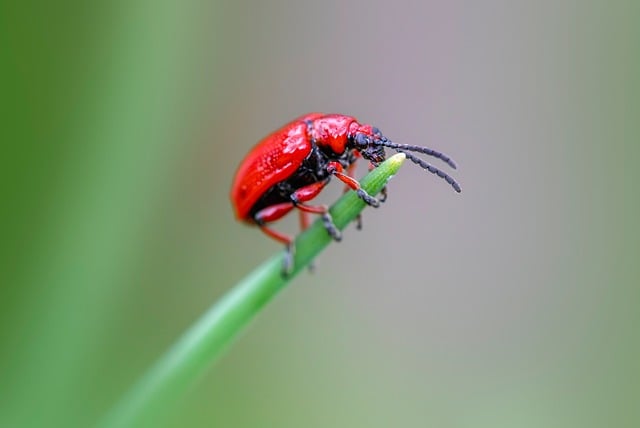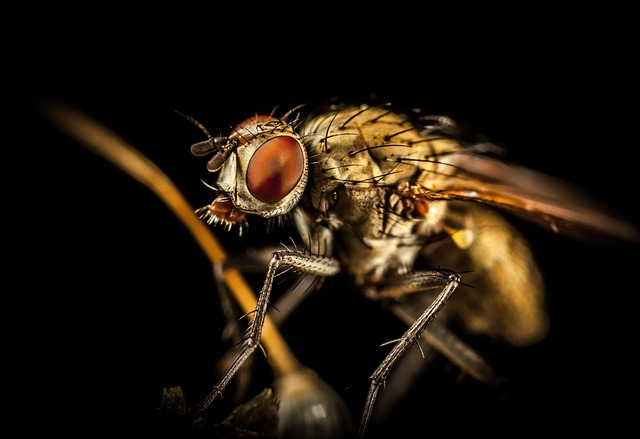In Sheridan, spider infestations and West Nile virus (WNV) transmission are significant concerns. Spiders are attracted to homes with food, moisture, and dark spaces, making prompt action crucial upon noticing increased activity. Effective residential spider control involves cleaning, sealing entry points, and professional pest control services. Similarly, preventing WNV spread requires a multi-pronged approach: proper drainage, eliminating standing water, mosquito traps, natural predators, strategic insecticide application, and eco-friendly methods like using insect repellent plants and essential oils to deter spiders while mitigating WNV risk. Integrating these strategies is vital for maintaining community health and well-being in Sheridan.
In residential areas, spider infestations can cause significant distress and pose potential health risks. Understanding these issues is crucial for maintaining a safe living environment. This article explores effective strategies to tackle spider problems, with a focus on eco-friendly solutions for Sheridan homes. We delve into the impact of spider invasions and provide insights into preventing West Nile virus transmission through robust residential mosquito control measures tailored for this specific region.
- Understanding Spider Infestations and Their Impact on Residential Areas
- Effective Mosquito Control Strategies to Prevent West Nile Virus
- Safe and Eco-Friendly Spider Treatment Options for Sheridan Homes
Understanding Spider Infestations and Their Impact on Residential Areas

In residential areas, spider infestations can pose significant challenges and impact the overall well-being of homeowners. Spiders are not only a common pest but also play a crucial role in maintaining the ecosystem’s balance. However, when their population surges within homes, it becomes necessary to implement effective spider control measures. One of the primary concerns with spider invasions is the potential health risks they pose, especially regarding vector-borne diseases like West Nile virus (WNV). Given that mosquitoes are the primary carriers of WNV, successful residential mosquito control is pivotal in preventing this disease’s transmission within communities, such as Sheridan.
Understanding these infestations and their impact is essential for residents to take proactive steps. Spiders are attracted to areas with ample food sources, moisture, and dark, secluded spaces—common characteristics found in many homes. Prompt action is required when noticing an increase in spider activity, as it could indicate a more extensive issue or a recent invasion from neighboring properties. Effective residential spider control involves combining various strategies, including regular cleaning, sealing entry points, and utilizing professional pest control services that employ safe and tailored treatments to mitigate the problem at its source.
Effective Mosquito Control Strategies to Prevent West Nile Virus

In Sheridan, residential mosquito control is crucial for preventing the spread of the West Nile Virus (WNV). Effective strategies involve a combination of physical, biological, and chemical methods. Installing and maintaining proper drainage systems, eliminating standing water sources like buckets, flowerpots, or old tires, and using mosquito traps are proven physical controls that reduce mosquito breeding grounds.
Biological control involves introducing natural predators such as bats, birds, fish, and certain insects to feed on mosquito larvae. Chemical treatments, when necessary, should be applied by professionals who can target specific areas while minimizing environmental impact. Using insecticides during peak mosquito activity and treating areas near human habitats can significantly reduce WNV transmission risks in residential areas.
Safe and Eco-Friendly Spider Treatment Options for Sheridan Homes

In Sheridan homes, ensuring a safe and eco-friendly approach to spider treatment is paramount, especially considering the potential risks associated with traditional pest control methods. Homeowners seeking to mitigate spider infestations can opt for natural, non-toxic solutions that not only protect their families but also preserve the local environment. One effective strategy is implementing residential mosquito control measures, as spiders are often attracted to areas with high mosquito populations due to the latter’s role as a food source and breeding ground. By employing eco-friendly mosquito control techniques, such as eliminating standing water, using insect repellent plants, and installing mosquito nets, homeowners can create an environment less hospitable to both mosquitoes and spiders.
Additionally, integrating natural repellents like lavender, citrus, or peppermint oils around the home’s perimeter can deter spiders without harming pets or humans. Regular cleaning and maintenance, including vacuuming and removing clutter, also play a significant role in preventing spider invasions. These safe and eco-friendly methods not only address immediate spider problems but also contribute to long-term pest management by promoting a healthier, more balanced ecosystem within Sheridan’s residential areas, thereby helping to prevent the transmission of diseases like West Nile virus carried by mosquitoes.
In addressing spider infestations in residential areas, a holistic approach combining understanding, prevention, and eco-friendly treatments is key. For homeowners in Sheridan, implementing safe and effective strategies not only mitigates the impact of spiders but also plays a vital role in residential mosquito control to prevent West Nile virus transmission. By adopting these practices, folks can foster a healthier, more comfortable living environment while preserving the area’s vibrant tapestry.
